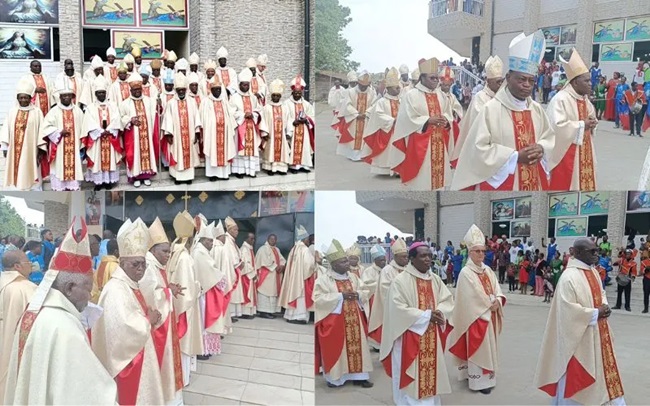Privacy Overview
This website uses cookies so that we can provide you with the best user experience possible. Cookie information is stored in your browser and performs functions such as recognising you when you return to our website and helping our team to understand which sections of the website you find most interesting and useful.


















14, June 2021
Dion Ngute shedding ‘crocodile tears’ on Ambazonia reconstruction 0
A senior aide to the Southern Cameroons Vice President says Chief Dr Dion Ngute as a prominent Ambazonian is shedding “crocodile tears” over the so-called Cameroon government plans to rebuild Southern Cameroons while he continues to chair cabinet meetings that are fostering murderous crimes on the people of Southern Cameroons-Ambazonia.
Dr Patrick Ayuk made the remarks on Saturday, two day after Cameroon Concord News released names of Cameroon government officials targeted by the US visa restriction program.
“Ngute is talking about reconstruction but his French Cameroun army is still carrying out unlawful & murderous crimes in Southern Cameroons. No need for Ngute’s crocodile tears when his French Cameroun military is busy killing innocent women and children in Southern Cameroons” Dr Patrick Ayuk told Camcordnews.
The Dabney Yerima senior adviser also called on the President Biden administration to place additional sanctions on the Biya Francophone Beti Ewondo regime in Yaounde.
Ambazonia is the indigenous name of the former United Nations trust territory of the Southern Cameroons under United Kingdom Administration for close to half a century, excluding the period of British connection with the territory from 1843 to 1887. When Republique du Cameroun took control of the territory, it split it into two parts and designated them as “northwest and southwest provinces/regions of Republique du Cameroun.” This was rejected and continues to be rejected by the people of the former British Southern Cameroons. The people of the territory insist on the indigenous name of their Homeland which is Ambazonia. This is consistent with a 1978 recommendation of UNESCO that African countries should call their countries by the name they wish to be known.
By Isong Asu in London